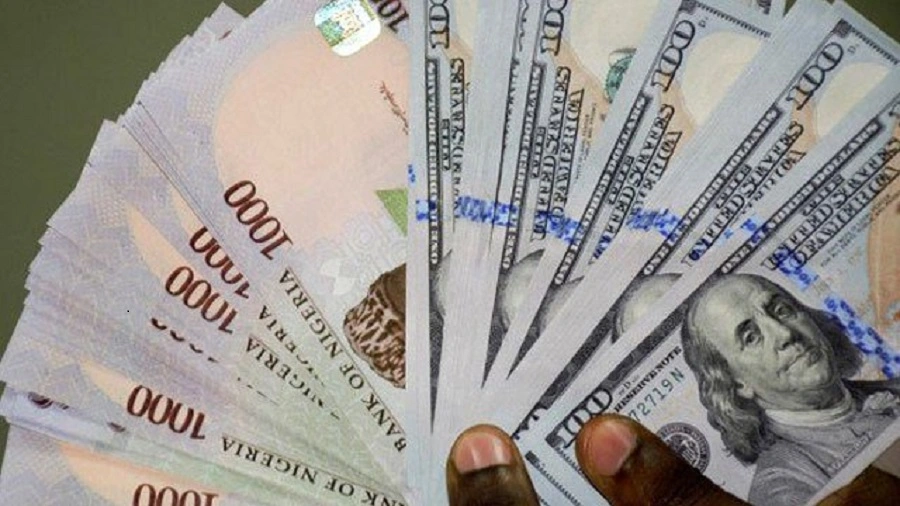The Nigerian naira concluded trading at a historic low of N848 per dollar on the official market, according to data from FMDQ, as dollar shortages continue to plague the country’s economy.
This marks a nine percent drop from the closing rate of N778/$ on the previous day and represents the most significant single-day decline this month.
In addition to the official market, the naira also weakened to a low of N1,050 per dollar on the parallel market due to robust demand for the U.S. currency.
Traders have reported that individuals seeking to travel for business, education, healthcare, and tourism purchase dollars from street traders because their demands cannot be met through the official market.
The naira hit an all-time low of N1,050 per dollar on Tuesday afternoon, reflecting a slight depreciation of 0.09 percent (N1) compared to the morning’s rate of N1,049.
The local currency had remained stable at N1,049 per dollar since the preceding Friday on the parallel market.
The decline in the naira’s value against the dollar on the official market occurred as foreign exchange market liquidity decreased by 18.72 percent.
The daily foreign exchange market turnover, which indicates liquidity and market transaction levels, dropped to $43.09 billion on Monday, down from $53.02 billion on the preceding Friday, according to data from the FMDQ.
The Central Bank of Nigeria (CBN) has expressed its commitment to enhancing liquidity in the Nigerian foreign exchange market through periodic interventions to maintain price stability.
The CBN intends to decrease its interventions as market liquidity improves. The central bank also emphasized its objective to ensure that market forces determine exchange rates based on the principle of a willing buyer and a willing seller.
The CBN urged that the prevailing FX rates be referred to on platforms such as the CBN website, FMDQ, and other recognized or designated trading systems to promote price discovery, transparency, and credibility in FX rates.


